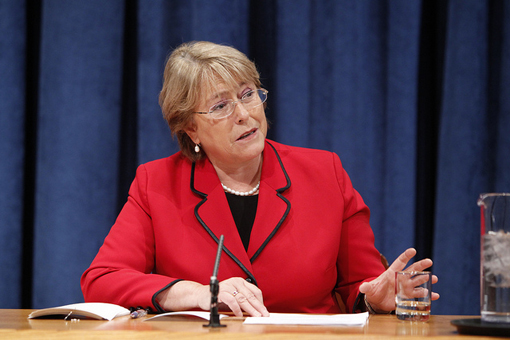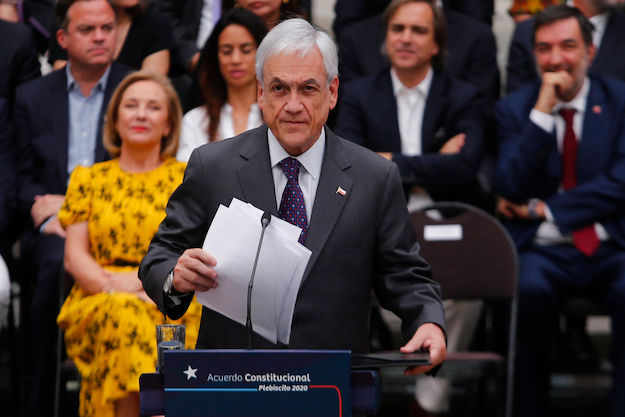Michelle Bachelet surprised no one last week when she announced she was leaving her post as head of UN Women. While she did not say so explicitly, it is widely expected that Bachelet will run for president again.
Though her victory in Chile’s November presidential election is far from a sure thing, public opinion polls have been consistent in giving Bachelet a strong advantage, and she stands a good chance of returning to La Moneda, Chile’s presidential palace.
The governing coalition, will base its campaign on a strong economy and stress continuity. The question, then, is on what will Bachelet base her campaign? Chileans like Bachelet (her positive numbers hover around 75 percent), but why should they reelect her?
For many in the opposition, Bachelet represents the opportunity to return to power, and to remove the right from office. For some, this in itself is sufficient. But Chile is not the country that it was when Bachelet was first elected in 2006, nor, is it the country that she left three years ago.
The former and possibly future president will face two kinds of challenges: politics and policy. On politics, there is little doubt that a Bachelet victory will be hers, not her party’s. Her approval ratings far exceed that of the opposition parties of the Concertación, which polls at about 20 percent, while roughly two-thirds of the population identifies with no political party.
This will give her enormous leverage in the short term. As she discovered last time around, however, she will depend on the parties to get legislation through congress. There is little room in Chile for Bolivarian-style personalism.
The choice Bachelet will face is whether to use her political capital to push legislation through, or to get to work on rebuilding Chilean politics from the ground up. Whether Bachelet’s popularity is sufficient to allow her to lead this political renewal—and whether she is even interested in doing so—remains an open question, but one which she must begin to face this year, as the Concertación seeks to position itself electorally. What is clear is that there is no other political leader in Chile who has the popularity and charisma to push Chilean political institutions beyond their current crisis of legitimacy.
These political challenges are all the more daunting in that they must be met while dealing with urgent policy questions. Should Michelle Bachelet be reelected, it is unlikely that the social movements that have emerged in recent years will simply disappear. In fact, many of the university students who have taken to the streets are particularly angry with the Concertación and Bachelet because some of the policies they reject were implemented during the four Concertación governments. The same is true for the Indigenous movement in southern Chile.
Bachelet also will have to deal with other outstanding issues that the Piñera government was unwilling or unable to resolve, such as Chile’s long-term energy shortage and the country’s relations with Bolivia and Peru.
This complex scenario has a silver lining: efforts at real institutional reform may go some way toward resolving both the politics and the policy. These may include profound changes to how the educational system is run and funded, how election campaigns and political parties are financed, how the Chilean state views and treats its Indigenous communities, how parties choose candidates, and how candidates are eventually elected.
Michelle Bachelet is undoubtedly aware of these challenges. Up to now, her UN responsibilities have prevented her from expressing views on current events.
In the coming months, her campaign must come up with more than a winning electoral strategy for a possible Bachelet 2.0—it must offer voters a vision for Chile 2.0 as well.









